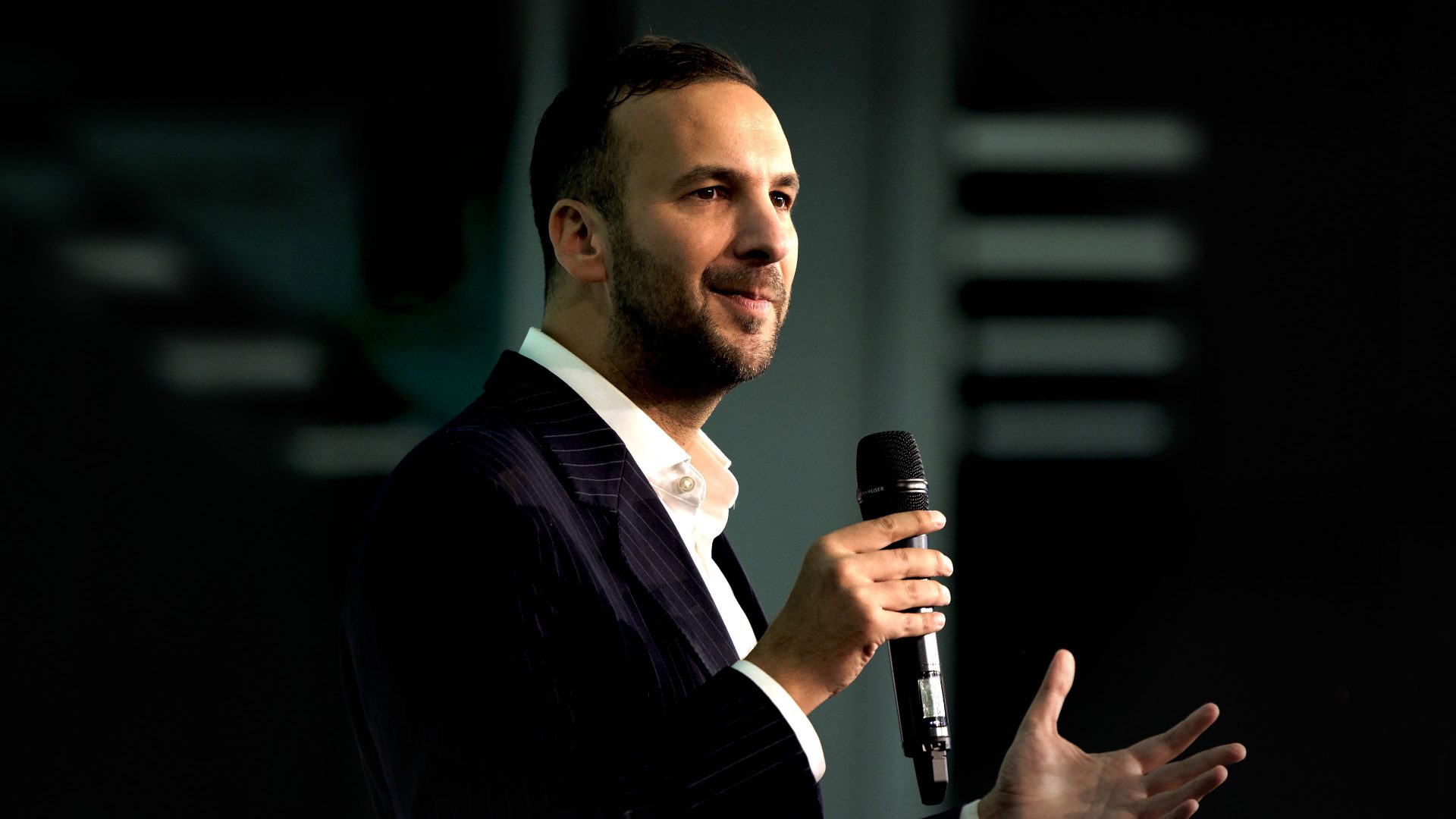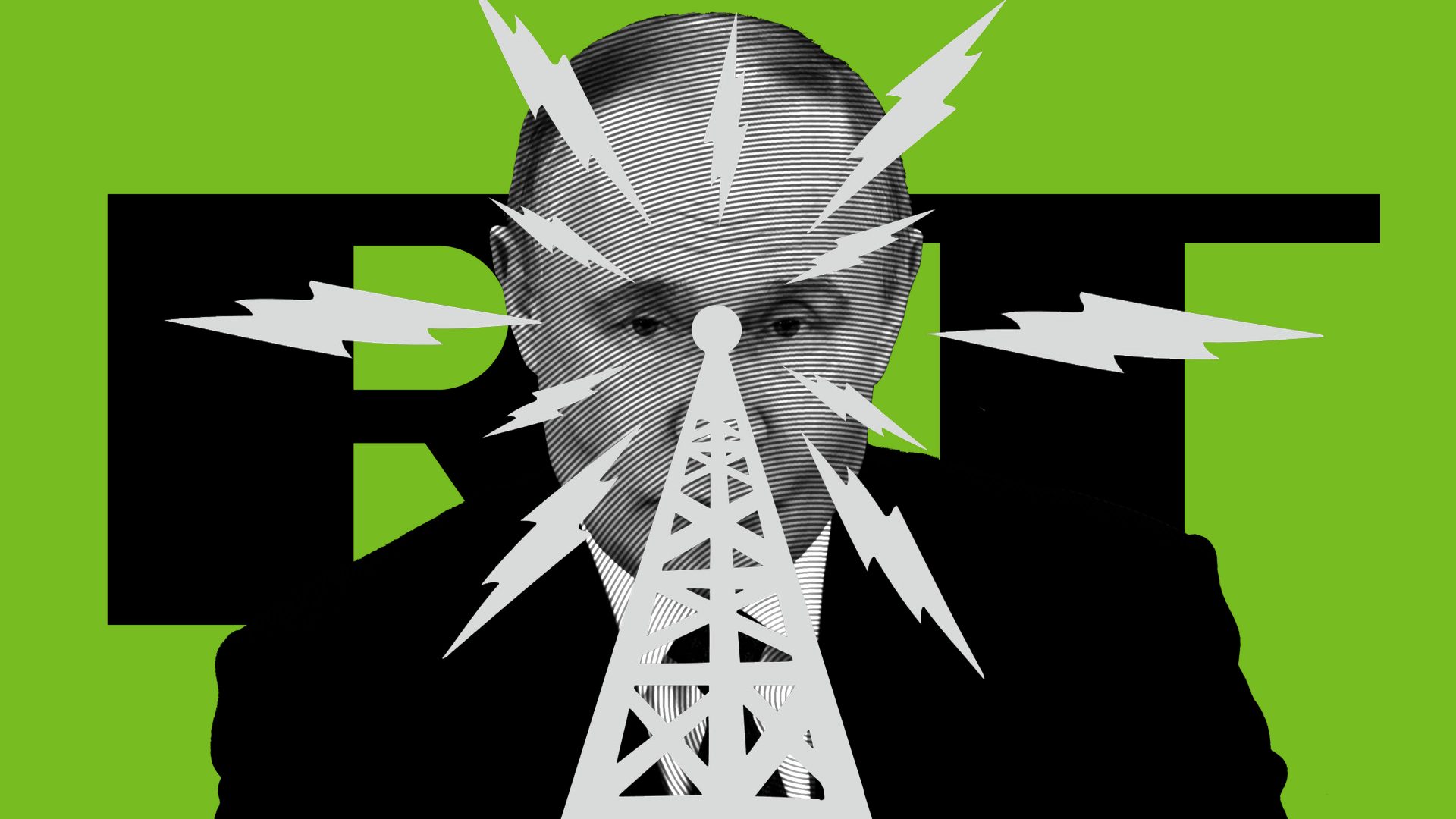Never has it been a better time to be a Green. With four MPs, over 800 councillors and over 60,000 members, the party is on a roll. For voters dismayed by the timidity of Labour and still furious with the Lib Dems for accommodating a Tory government, it is a haven of principled, compassionate politics. Other politicians bend to the will of Reform, but not the Greens. It is the only major party in England that wants to rejoin the EU as soon as possible.
Greens despise Nigel Farage and virtually all that he stands for. Yet his success is tantalising.
The Labour-Conservative duopoly is dissolving. A movement that was once at the very fringe of British politics is ahead of Labour in the polls. Imagine what that could mean for another movement, if it can seize on a leader and a message that cuts through with the public.
The Greens pick new leadership this summer, and members face a choice. Do they stick with the current co-leader Adrian Ramsay, who is running alongside his fellow MP, Ellie Chowns? Or go for Zack Polanski, the charismatic deputy leader and London Assembly member who inspires some, but appals others?
Many members are undecided. North London activist David Farbey, who joined the party about a decade ago, is one of them. He used to vote Labour, and then joined the Lib Dems, but left after they went into coalition and acquiesced in putting up tuition fees. “I had thought that the Green Party was only about the environment, but I read through some of their other policies on social justice and the economy, and I kept thinking ‘Yes, I agree with that’.”
Farbey is torn. “It’s a question of style and presentation. I know Zack Polanski well. I can see the appeal his forthright and outspoken manner has for one section of the public – younger, more activist, more engaged voters. We clearly need those people to vote Green.” On the other hand, Ramsay and Chowns secured previously unwinnable rural seats in the general election. “That took a lot of organisation and hard work, and mobilising a lot of volunteers.” He understands their more ‘conventional’ appeal.
Some activists love Polanski’s fluent conference speeches and his mastery of short, punchy social media videos. For them, he is as sincere, passionate and able to reach parts of the electorate that would never normally consider voting Green. But others – off the record, because there is every chance he could win this contest – decry him as a shallow opportunist who quit the Lib Dems after failing to secure the selection he wanted, and would drag the party into the politics of class consciousness and the far left. For them, the identity of the Greens is at stake.
So who is the real Zack Polanski, and how does he want to change the Greens? David Paulden was born in 1982, grew up in Salford and changed his family name back to Polanski at the age of 18: his ancestors had anglicised it for fear of anti-Semitism. He went to university in Aberystwyth and studied drama in the US before moving to London. There he worked the gig economy, including acting in community theatre and as a hypnotherapist, before joining the Lib Dems and standing unsuccessfully for Camden council and the London Assembly.
Polanski then tried to get selected as a candidate in Richmond Park in south-west London, but didn’t make the shortlist. He was deeply unhappy about the decision, complaining that he was unfairly discriminated against because he lived outside Richmond.
The Lib Dems, he wrote, were “not interested in the diversity and experience I would bring as a gay Jewish renter while seeking to represent [an] area that is less and less Christian, less white; and indeed increasingly private renting.” Soon after, he quit and joined the Greens.
By 2021 he was a member of the London Assembly, and the following year he became deputy leader of the party. Constitutionally, the Greens must have either two co-leaders and a deputy, or one leader and two deputies. This spring Carla Denyer said she would not stand again, so Chowns teamed up with Ramsay on what is essentially a “keep doing what we’re doing, because it’s working” ticket.
“In the Green Party all of us are equals, and we work together. The role of the leader in our party is quite different,” says Molly Scott Cato, a former MEP who sits on the party executive. She is backing Ramsay and Chowns. “Ellie and Adrian want to unite the party. We don’t have hostile factions. That’s never been the Green way.
“I really see this leadership contest as a test of how serious the party is about political power. We’ve come from outside the political system to inside it, and I think it would be a backward step to go back to having someone who isn’t an MP as our leader. Ellie and Adrian are serious politicians, grown-ups. [Ramsay] doubled the number of councillors while he was leader.”
Polanski, on the other hand, represents change. He wants to fight right-wing populism with “bold leadership” and what he calls “eco-populism”. The term was coined at the end of the last century by a US professor, Timothy W Luke, to imagine how numerous groups – not just Marx’s proletariat – could unite to oppose capitalism in the cause of ecological justice.
Still, it is fair to say the word “populist” has acquired some undesirable baggage since then. Can you really make a green message populist? Doesn’t it sometimes involve communicating hard truths about the state of the planet? “I absolutely believe climate action can be communicated in that way,” Polanski told me. “We can do things like insulate homes. It creates jobs and reduces emissions too. Nationalising water companies, cleaning up our cities’ air, investing in public transport, cheaper fares.”
Some Greens prefer to have no truck with the term at all. “Populism is incompatible with an ethical core,” one long-time member told me. “The Green Party of England and Wales knows what it stands for. Social and ecological justice and sustainability. Courting votes almost always drags politics to the right as it has done with the Tories and the Labour party.
“Zack has tried to explain ‘eco-populism’ in terms of the party being the only one with genuinely social and socialist policies, but the term is so tainted now that I wish he had not used it.”
Suggested Reading


Carla Denyer: the most ignored woman in British politics
I ask Polanski what he will do first if he wins the leadership. “It’s about seizing this big moment. We need to accelerate what we do, we can’t be slow, making incremental changes… We know future talent isn’t found; it’s developed. Our next generation of Green leaders haven’t even joined the party yet.
“We need to make sure we’re all over the media. We’re not a single issue party.” The Greens need “more genuine authentic community engagement, so we’re not expecting [potential new members] to go to Green meetings, but going to mosques, synagogues and non-faith spaces.”
Polanski’s sense of urgency has something in common with the early Green movement, which drew heavily on an apocalyptic Penguin paperback called A Blueprint for Survival, published in 1972. It predicted the imminent breakdown of society unless people returned to a more tribal-based way of living. Supporters tended to retreat to remote parts of mid-Wales and the West Country in an effort to pioneer their ideas and to survive the end of modern civilisation.
Renewable energy has transformed how environmentalists think about living in cities, and today’s Green Party is far more urbane. But Polanski’s candidacy offers a radical edge. “The planet is burning… Nature and the environment is the existential threat of our time,” he says.
Members can chafe at how long it takes the party to make decisions. “Our internal structures and systems take up far too much time and energy,” says Farbey. The Greens usually elect a new leader (or leaders) every two years. This time Polanski or the new team will only have a year to prove themselves before having to stand again, because last year’s elections were postponed due to the general election. “If we could give our leaders and executive members longer terms of office, those people might have a better chance of getting things done.”
For others, these checks on power – and the one member, one vote principle for approving policy at annual conference – are what makes Greens distinctive. The movement has always been conservation-minded and sceptical about the need for development, or indeed any economic growth at all.
“If you go back to the seventies,” says Mitya Pearson, an assistant professor in the politics of climate change at the University of Warwick, “they were opposing things like pylons and road building or nuclear.” But pylons can carry renewable electricity now. Electric cars use motorways. And Green councillors and MPs have to make up their minds whether to support housing developments and solar farms.
This leads to accusations of hypocrisy. Why wouldn’t a party committed to renewable energy support the network of pylons connecting North Sea wind farms to the grid in East Anglia? (Ramsay says he wants the alternatives to be discussed first. They are extremely expensive.) Doesn’t the need for solar farms outweigh NIMBYish concerns about the view?
Green councillors argue they have to bring people with them, not be forced to follow an edict from party HQ. “Community-led planning has been proven again and again to be far more effective than trying to build a housing estate while 200 angry NIMBYs object to it,” says Vanessa Hutchinson, an activist and campaign manager in Ashford in Kent. “Get the community involved from the start, let them feel a sense of ownership. Then they’ll be on board from the very beginning.
“It’s not about sacrifice – it’s about a more secure, fairer and kinder future,” says Hutchinson. “We need to find a way of communicating this to people in a way that doesn’t put them on the defensive or make them scoff… On the doorstep, we had lots of people say that they were voting either Green or Reform. Far from being representative of some kind of imaginary enemy, Reform voters are people we want to help. We need to communicate with them better.” She is voting for Polanski because “he understands the communication issue and he’s not going to shy away from being creative and experimental in addressing it.”
Yet the appeal Polanski has to the far left is worrying for some Greens. They believe supporters of Jeremy Corbyn are looking for a new home, and that Polanski is too willing to supply it. They are concerned about the support of Owen Jones, the Guardian columnist who was a prominent Corbyn backer, if it leads to a takeover by legacy Corbynites. The talk is of “entryism”.
They fret that the focus on climate is being watered down, and they want a party that, if necessary, could go into coalition with Labour to prevent a Reform government – a Green party that could exert the kind of influence its sister party has had in Germany. And they are conscious that the rural seats Ramsay and Chowns won at the last election used to be Conservative.
“I don’t believe in the idea of parties being taken over,” says Polanski. “We want to build a mass movement. I joined from the Lib Dems. This idea that we should be insular and only appeal to our base and a small group of people can hold the party back. Pluralism runs throughout my politics and always has. In the London Assembly I work with people I disagree with.” He would try to co-operate with Labour on climate, but “I don’t think a formal coalition with this Labour government, if it continues in this direction, is something that would be palatable to me.”
Suggested Reading


Labour must keep it green
There is also disquiet over Polanski’s past – notably an interview he did with the Sun in 2013 when he was working as a hypnotherapist. “Can you really THINK your boobs bigger?” it asked. “Essentially, I am looking to utilise the unconscious process to make changes to the body,” he explained to the eager reporter.
“I’ve apologised,” he says. “People are more than one story.” But the incident goes down particularly badly with gender critical Green women, some of whom have been expelled from the Greens in recent years. One is taking the party to court. Polanski is full-throated in his support for trans people, condemning the Cass Review’s criticism of puberty blockers; Ramsay says much less on the issue. The “hypnotits” affair, as some of Polanski’s critics have dubbed it, is more than just an embarrassment. It shows his unusual ability to listen carefully and empathise with the person he is talking to. To his detractors, it just shows that he is willing to tell people whatever they want to hear.
James Dennison is a professor at the European University Institute and has written a book about the Greens. He says Polanski’s overtures to ex-Labour voters are nothing new. Nor is flirting with populism. “From time to time [members have] talked of becoming a UKIP of the left, or similar. Part of this stems back to a belief on the left that we can only make sense of the popularity of right wing parties due to their campaigning or rhetorical styles, since no one could possibly agree with their policies.
“That is a naive belief, in my opinion. People vote for Reform because they see them as the least bad party to deal with their most important issues. The party should focus on issues that other parties lack credit on. Fortunately for the Greens, there are plenty to choose from right now: health, housing, crime, and immigration. All the party has to do is put forward clear policies that differentiate them from other parties on these issues. They needn’t be either populist or radical.”
The Greens also have to focus on those issues because the public is simply not as worried as it used to be about the environment. Even at the end of 2021, only a third of Britons rated it as one of their top three concerns. Now less than a fifth do.
Is the party flexible enough to be more things to more people? Yes, says Dennison, who points out that the Greens’ policies were already “Corbynista”. The big change has been the pro-European move after the referendum, where the Lib Dems have shown a lack of verve.
The Green Party has always been a curious blend of radicalism and provincialism. The earliest members met at a golf club: they were lawyers and estate agents. “I joined the Green Party so that when my children ask me about it, I can tell them that I did absolutely everything I possibly could to try and make the world a better place for them,” says Hutchinson.
Now, hundreds of Green councillors worry about whether they can afford to fix roads. It’s tough to save the world, especially when you have to do it one pothole at a time. Just how radical will the new generation of Greens be? We are about to find out.




